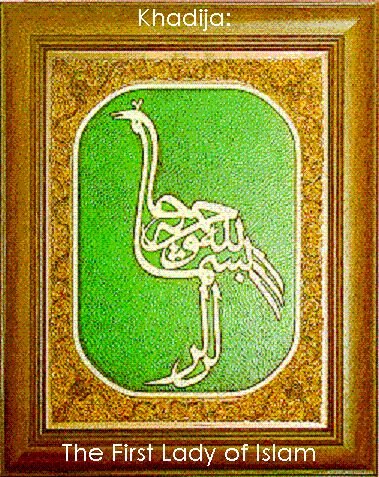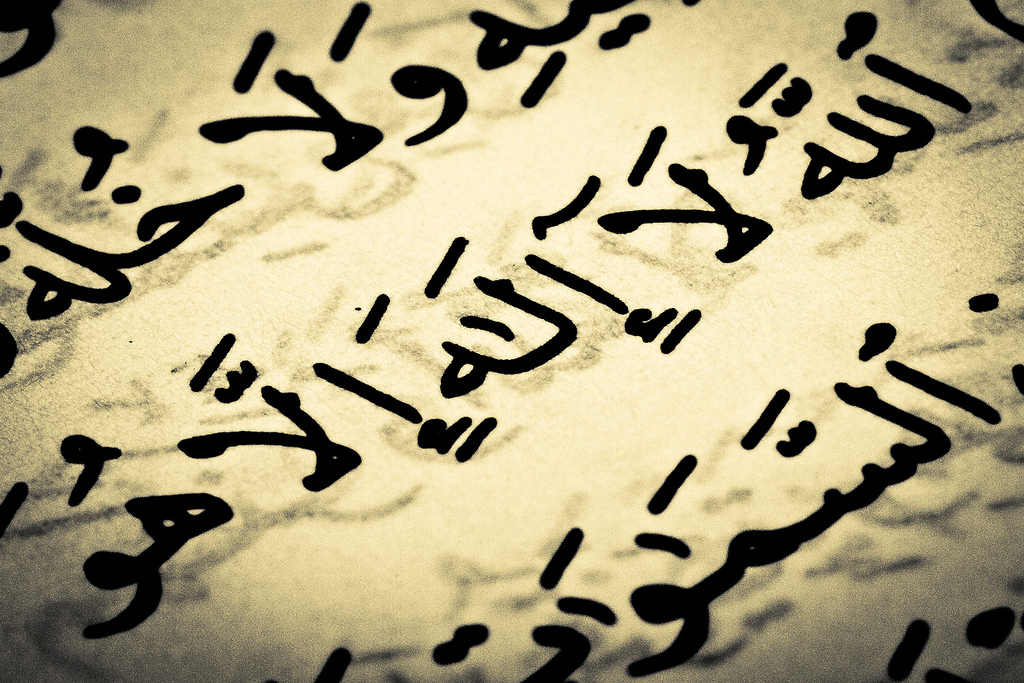Khadija, The First Lady of Islam, is a recently published jewel of Islamic historical fiction that eloquently
narrates the entire life of one of the most honored women in Islam–an exquisite testimony to her life
and her contributions to the religion. Delicately crafted by Maxine Meilleur, this comprehensive, well-
researched work is a must-have for Muslim and non-Muslim history buffs, book lovers, and Khadija
admirers.
“Khadija was adorned beautifully as she rode a white, she-camel on her way around the city. Resting
upon Khadija’s head was a floral tiara, and her hair was threaded with blue ribbons and strands of
lustrous pearls. She wore bracelets of agate, coral and rock crystal, and she held a jeweled fan in her
hand. A team of Nubian slaves carrying flambeaus marched in front and on the right and the left sides of
the she-camel.
Mohammad also rode a horse, and he, his uncles, the young men of Bani Hashim and their guests,
returned in the evening to the house of Abu Talib in the same panoply as they had gone earlier that day
to the house of the bride.”
Khadija, The First Lady of Islam, is a recently published jewel of Islamic historical fiction that eloquently
narrates the entire life of one of the most honored women in Islam–an exquisite testimony to her life
and her contributions to the religion. Delicately crafted by Maxine Meilleur, this comprehensive, well-
researched work is a must-have for Muslim and non-Muslim history buffs, book lovers, and Khadija
admirers.
Read on about the author and her journey in writing Khadija, The First Lady of Islam.
Because Khadija, The First Lady of Islam, is a detailed, flavorful account of the life of this mother
of the believers, from birth to death, it is bound to raise the reader’s curiosity as to what is fact
and what is fiction. What sources formed the cornerstone of your research?
The idea of exploring Khadija came when I was in Kuwait. My family is Shi’a so we know a lot about
Fatimah, Zaineb, Ali, etc., but I was taken by Khadija. No one knew much about her and this made me
zealous to study what her life was probably like.
“To recreate Khadija’s life and bring her back to life, the author had to read between the lines of the
historical record and thoroughly research the culture and society that existed at the time of Khadija…The
sources that do exist for Khadija’s life are obscure, confused and very often contradictory. History more
often than not ignores women or relegates them, even the women titled “The Great”, into the permanent
shadow of men.”
While writing about the life of the first revert to Islam, Khadija, have you encountered criticism on
the caliber of your work or even the authenticity of your faith?
So many people are afraid that I will be the subject of a fatwa [a legal opinion or ruling by an Islamic
scholar]! Others absolutely refuse to discuss or even consider what Khadija’s life was like. I agree that
she is a revered person and [presenting] her in a bad light would be problematic, but what’s wrong with
talking about the history of Islam? It will help [us] to appreciate the Prophet and his family more if we can
visualize the [day-to-day] details of their lives.
What sort of “clearance” did you need from Muslim scholars in order to write this book? .
I went to several people, from the conservatives to the liberals. While some of the conservatives refuse
to discuss or allow such a work to progress, I at least got their opinion and their arguments. I still asked
them for guidance and what NOT to write – what would be offensive. I asked the liberals what areas they
wanted to read about and then [returned] to the conservatives and told them what the liberals [had] said
and got their opinion on it. I tried to find something that everyone (or most people) would agree on.
In spite of the shameful pre-Islamic Arabian practice of female infanticide, the relationship
between Khadija and her monotheistic father, Khuwaylid, is portrayed as one of love and respect
in your book.
“Taking the babe from her mother’s arms, Khuwaylid gazed upon its elegant face saying and
repeating, “Praise be to God, Praise be to God, Praise be to God,” his attention totally captured by the
newborn girl’s strangely generous and calming aura.“What is her name, my husband?” Fatimah asked, to which he replied, “Khadija, a noble, elegant and
generous name for a noble, elegant and generous girl.””
Are parallels of this relationship seen in the one she had with Mohammad?
[The first man a woman comes to know in this era is her father.] Women’s ideas of men are thus formed
based on their relationships with their fathers. Khuwaylid must have been a caring, sharing man.
Given your military background, having served in the U.S. Army for almost a decade, readers of
Khadija, The First Lady of Islam, will be looking for a second treat, perhaps a historical account of
Nusaibah bint Ka’ab or Khawlah bint Al Azwar, both admired Muslim women warriors. Is this an
endeavor you have already entertained?
No, I was thinking about Shah Jehan, the woman behind the Taj Mahal, but I’ve taken to polish Khadija
instead.
Although many Muslims use Khadija’s role as a successful business woman to argue for Muslim
women’s participation in the work force today, her pre-Islamic days are generally not used as
basis for rule making. How did you tackle that in your book?
The politics of some countries limit women in the workforce today. Khadija inherited a business when
there was probably no other woman in the caravan business. So, she no doubt faced a lot of bias and
institutional discrimination against women in business. But some women in Khadija’s time engaged in
weaving and other crafts, food preparation, herbal medicine, midwifery, etc. They had to have traded
amongst themselves and sold their goods. Some people today can’t get their minds around the fact that
Mohammad married and loved a woman so accomplished. After his marriage, he continued to support
her work – her business.
(Photo Source: raihaneh.com)
Ms. Meilleur is the author of “Khadija, The First Lady of Islam,” and the successful owner of Kuwait’s only
used bookstore Better Books, a literary haven ten years in the making that offers visitors thousands of
books of all genres, tea, plush reading space and even the occasional yoga class. When asked if she
would consider an adaptation to film of her book by the right filmmaker, Ms. Meilleur answered with a
resounding yes!





